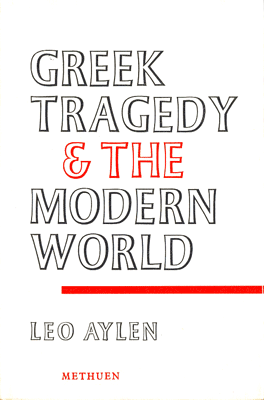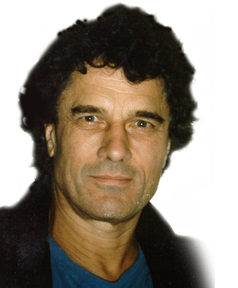 Greek Tragedy and the Modern World (Methuen)
Greek Tragedy and the Modern World (Methuen)
What is Tragedy? Critics have argued about its essence. Instead of abstract discussion, this book examines the plays of Aeschylus, Sophocles, and Euripides, and discovers that they have very little in common with the Tragedies of Racine and Corneille, or other schools of drama to which critics have given the title of Tragedy. For example, there are no Tragic Heroes in Greek tragedy. Aristotle is discussing the theatre a hundred years after the death of Sophocles, when the plays were grand opera, quite different from the communal dance drama of the fifth century. Aylen reaches conclusions about the nature of those fifth century Athenian plays by Aeschylus, Sophocles, and Euripides, and then in the second half of the book, examines various plays by twentieth century playwrights which, either consciously or unconsciously aim at the status of Tragedy. Whether considering Tragedy in the abstract, or the plays called tragedies written by the Athenian poets and their twentieth century imitators, criticism requires a holistic view of life, with philosophy, ethics, politics, and religion, all included. The plays of Aeschylus, Sophocles, and Euripides, offer such a total view. We can only do justice to those great writers by attempting the same ourselves.
An important book that towers high above the pedestrian level of most of what nowadays goes by the name of ‘critical literature’ on drama.
Martin Esslin THE LISTENER
Philip Toynbee wrote this essay in THE OBSERVER
THE AUTHOR of this very interesting book opens his introduction with a declaration of serious intentions. “The one thing that is certain about a human being is that he will die. Any first-year student of linguistic philosophy could tear this declaration to shreds, but it is a part of Mr Aylen’s thesis that linguistic analysis has already accomplished its necessary task — the chief of which was to make quite certain that Idealism is so dead that it will never rise again — and that what is now needed, in philosophy, in the arts, in ethics, and religion, is a new “imaginative synthesis.”
He believes also, that we have erred in the atomisation of our different “subjects,” and that it is a mistake to make distinct judgements of a work of art in terms of aesthetics, moral content, philosophical truth, and so on. For Mr Aylen the great Greek tragedies are the models of what significant modern art should and could be. The Greek dramatists were not only poets but teachers, and their concern was not to create something beautiful, but to make a public demonstration of man’s true moral nature.
In the second half of the book, after his informed studies of Aeschylus, Sophocles, and Euripides, Mr Aylen examines certain modern playwrights who have consciously tried to reanimate Greek tragedy. He concludes that all of them — Cocteau, Gide, Giraudoux, Anouilh, Sartre, Ghéon, and Eliot — have failed to understand their task, with the single exception of Eliot in “Murder in the Cathedral.”
Mr Aylen is a Christian, and though he does his best to grant that great modern verse tragedies might be written by humanists or Marxists he plainly believes that Christian history and philosophy provide by far the most probable forms for the renaissance which he hopes to see. This goes much farther and deeper than the all-too-familiar parrot-cry for a moral judgement of the arts. The book is a plea for a new assault on the truth of our condition, and Mr Aylen’s conclusion that the analogies and images of “rational poetry” are the proper medium for exploring that condition is a claim which not only restores dignity to the arts but suggest all sorts of new possibilities in other fields as well.
There are times, I think, when this very young sage — he is only 29 — tries to cover too much ground at too high a speed. He makes the conventional claim that modern quantum physics and, in particular, the Indeterminacy Principle, somehow endorse religious belief. Out of my own ignorance I would suspect that there is no truth in this.
I think, too, that Mr Aylen tries to simplify too much when he continually insists that all forms of aesthetic criticism must be trivial and irrelevant. An aesthetic approach to a work of art is a necessary part of the critics’ function — as Mr Aylen is forced to concede when he admits that the Christian plays of Henri Ghéon fail because Ghéon wrote in “a vulgar and tasteless idiom.” The style may not be the whole man, but it is more of the man than Mr Aylen’s theory has allowed.
Yet the book triumphantly survives these disabilities. I have never read a better appreciation of “Murder in the Cathedral” or a more cogent attack on the absurdities of Sartre’s “Huis Clos.” Mr Aylen wrties with an impressive authority about the issues which matter most to all of us.
Philip Toynbee THE OBSERVER
